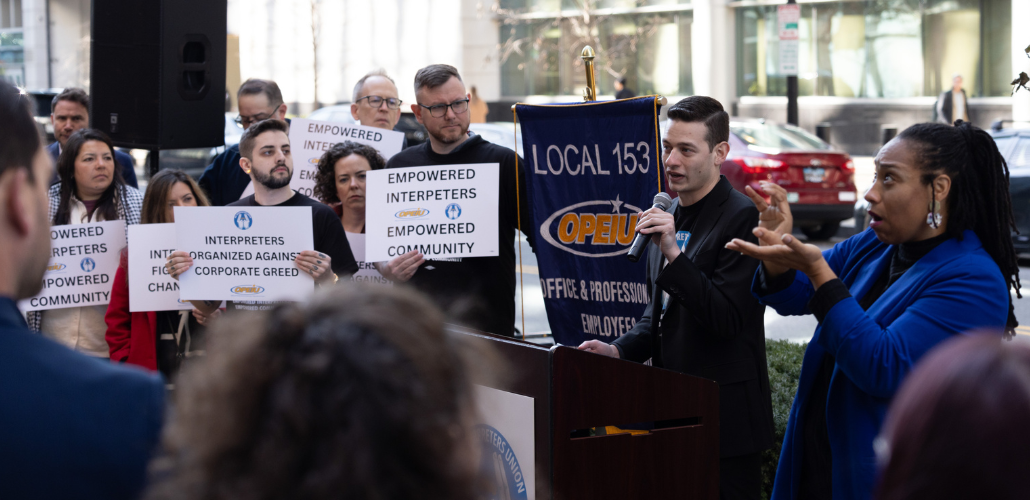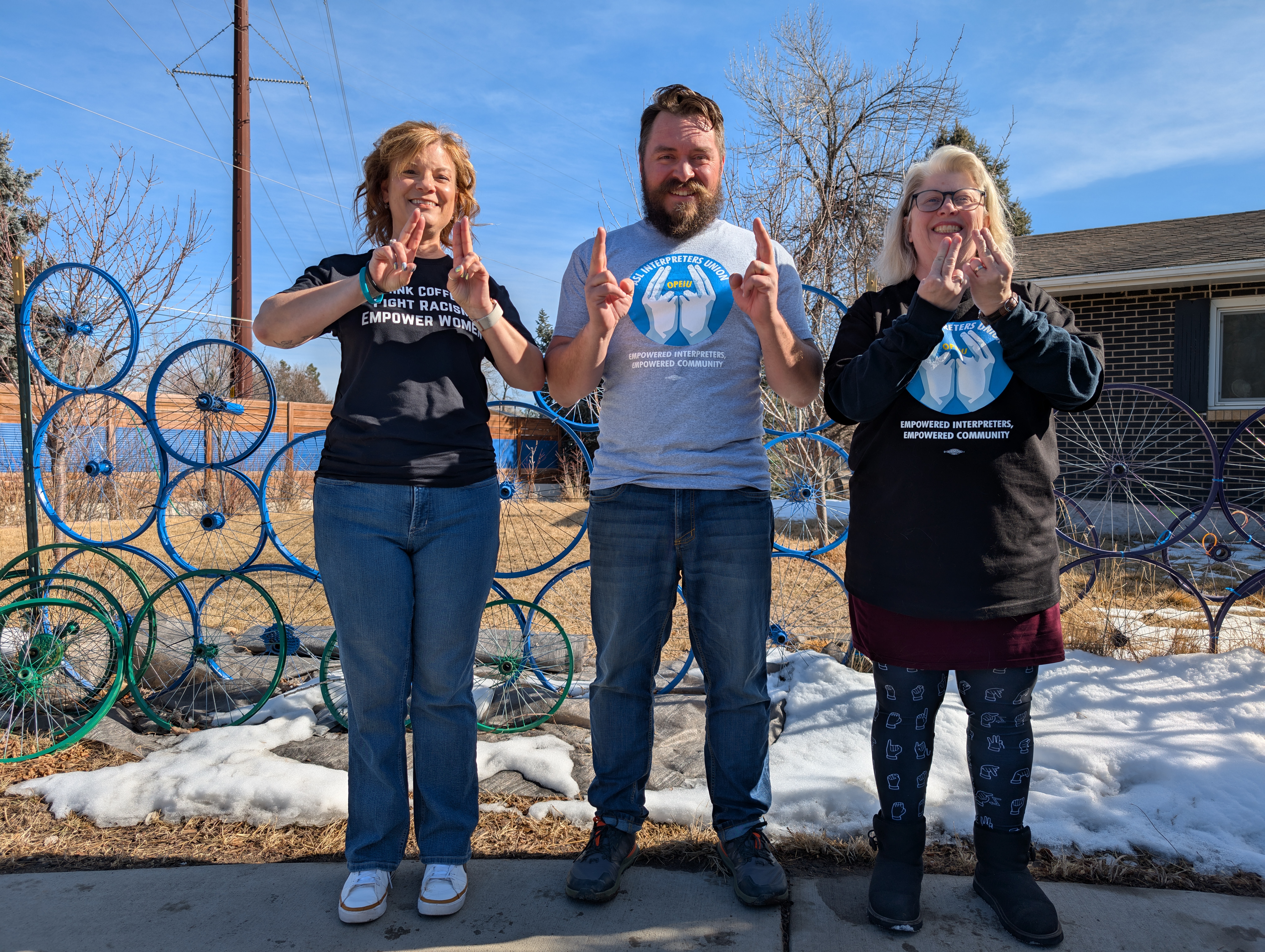Video Interpreters for Deaf Callers Are Organizing Against Burnout

Interpreters for video calls between Deaf and hearing people are organizing for decent working conditions. The service is publicly funded, but their employers are multinational corporations and private equity. Photos: ASL Interpreters Union-OPEIU
Growing up, I never considered myself an interpreter. It was just life as the daughter of two Deaf parents, in a world where sign language was a lifeline.
I learned from a young age that the quality and availability of interpreters could determine whether a Deaf person had access to the services and rights that hearing people take for granted.
I became a professional interpreter because I understood how vital this access was. But I never expected to be exploited in this work, or to burn out from providing the service that had always come so naturally to me.
That’s why I’ve decided to join the union.
April 30: Online Town Hall
The ASL Interpreters Union–OPEIU and U.S. Rep. Greg Casar (D-TX) will host a public forum on Wednesday, April 30, at 8:30 p.m. Eastern to hear from ASL interpreters on their experiences with deteriorating working conditions in the Video Relay Service industry. Register here.
HIGH VOLUME, LITTLE REST
I work for a company called ZP Better Together as a trilingual interpreter based in Puerto Rico, providing video relay services (VRS) to Deaf individuals—not just between American Sign Language and English, but also to and from Spanish.
VRS enables functionally equivalent communication for Deaf, Hard-of-Hearing, and Deaf-Blind callers, as required by the Americans with Disabilities Act. It’s funded through the Telecommunications Relay Service Fund, which all Americans with a phone bill pay into, administered by the Federal Communications Commission.
I work from home in San Juan, but get calls from all over the country and internationally. I interpret conversations between Deaf and hearing people over simultaneous video and audio calls for a variety of life situations, from personal conversations to emergency calls.
VRS interpreters handle a high volume of calls each day, often back to back; we don’t even know which language we’re about to get on the phone. We’re expected to maintain a high level of accuracy, efficiency, and professionalism—but that can be incredibly difficult when we have little time to rest between calls or to process particularly difficult or traumatic calls.
The unrelenting pace takes a toll on our physical and mental health; ZP and its primary competitor, Sorenson Communications, are notorious for high rates of attrition and burnout. And it compromises the quality of service we can provide. Deaf people deserve clear and accurate interpretation by qualified, compassionate, well-rested interpreters.

SUPPORT LABOR NOTES
BECOME A MONTHLY DONOR
Give $10 a month or more and get our "Fight the Boss, Build the Union" T-shirt.
VRS users are also rightfully frustrated at the long, complicated queue they have to navigate. Callers are abruptly transferred again and again to various interpreters just to get their calls placed. It’s exhausting, especially for those who are not native English-speakers.
ZP is now owned by a French multinational corporation called Teleperformance. Sorenson is owned by the Chicago-based investment firm Ariel, and minority-owned by The Blackstone Group, the world’s largest private equity firm.
NO RETALIATION YET
Thousands of VRS interpreters at ZP and Sorenson are organizing with the Office and Professional Employees (OPEIU) under its ASL Interpreters Union.

These companies have call centers throughout the U.S.; they have opened call centers in Puerto Rico, then closed them, then opened them again. It has been important to our union’s growth that the organizing committee includes trilingual interpreters, making sure the campaign speaks to our particular needs.
As a union, we’re advocating for more time between calls, more jobs for Deaf workers, protections against traumatic or abusive calls, fair working hours, higher compensation for trilingual interpreters, greater access to benefits, higher-quality interpretation, and more resources to support us in our roles.
People are concerned about retaliation if they join—especially younger workers, who have less experience with unions. It’s up to us to explain the protections we have, and the benefits of what we’re trying to accomplish.
But we haven’t seen any retaliation yet. That’s probably because we’ve been very deliberate about building an organizing committee across the United States and Puerto Rico that has been communicating with Sorenson’s and ZP’s parent companies since early in our campaign.
I invite all my fellow ASL interpreters and Deaf and Hard of Hearing community members to join us in this movement.
Marina Martinez is a VRS interpreter. Learn more at aslunion.org.





